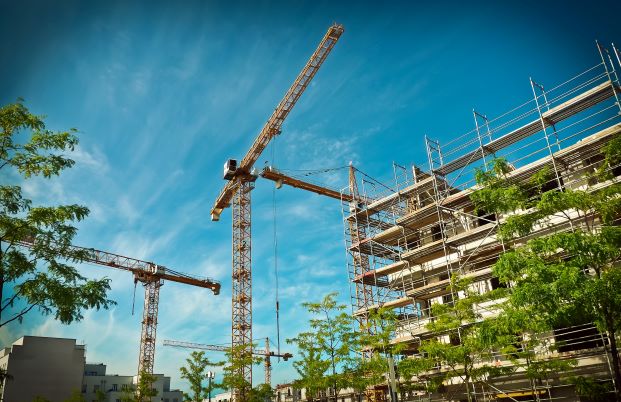BEE Signs MoU With CPWD To Promote Energy Efficiency in Buildings
The Bureau of Energy Efficiency (BEE) and the Central Public Works Department (CPWD) have signed a memorandum of understanding (MoU) for co-operation in promoting energy efficiency in buildings.
 AANGAN Kicks off in Delhi
AANGAN Kicks off in Delhi
 The BEE and CPWD Agreement will remain in force for 5 years. The official statement said BEE and CPWD will cooperate in promoting designs and construction of Energy Conservation Building Code (ECBC) compliant new buildings, star rating of CPWD-managed buildings across the country with no registration or renewal fee, awareness on energy efficiency in the building sector and support for capacity building of CPWD officials in ECBC.
The BEE and CPWD Agreement will remain in force for 5 years. The official statement said BEE and CPWD will cooperate in promoting designs and construction of Energy Conservation Building Code (ECBC) compliant new buildings, star rating of CPWD-managed buildings across the country with no registration or renewal fee, awareness on energy efficiency in the building sector and support for capacity building of CPWD officials in ECBC.
The official statement said:
This association of BEE, a statutory body under Ministry of Power which is mandated to implement policy and programmes in energy efficiency and conservation with CPWD, a premier construction agency of Govt. of India would establish new benchmarks for energy efficient buildings in the country and will support Government of India’s vision for achieving energy security, economic growth and environmental sustainability.
Areas of cooperation identified by CPWD and BEE are:
- Star rating of Commercial CPWD managed buildings with no registration or renewal fee
- Awareness on of Energy Efficiency in commercial buildings.
- Support for ECBC (Commercial & Residential and capacity building of CPWD officials
- Construction of ECBC compliant new buildings.
- Any other area with mutual consent in the area of building energy efficiency.
In the first stage, approximately 150 buildings will be taken under a star rating scheme to promote energy efficiency in CPWD managed buildings. This initiative is expected to result in energy savings of more than 260 million units in the first stage, with operational savings of about Rs 100 crore.

The MoU is additional to another energy conservation building code(ECBC) for residential buildings called ECO Niwas Samhita 2018. The code upon implementation is expected to save 125 Billion Units of electricity per year by 2030, which is equivalent to 100 million ton of CO2 emission. The Code was issued by Ministry of power in December 2018 and is expected to assist a large number of architects and builders who are involved in design and construction of new residential complexes in different parts of the country.
The last ECBC for commercial buildings was launched in June 2017. It is estimated that energy demand in the building sector will rise from around 350 billion units in 2018 to approximately 1000 billion units by year 2030.
Commercial building sector in India is expanding rapidly at over 9% per year spurred largely by the strong growth in the services sector. It is estimated that more than 50% of building stock that will exist in the year 2030 is yet to come up in the country; a situation that is fundamentally different from developed countries. Having regard to the fact that the rate of growth in the commercial building sector is amongst the highest, and that, this sector needs to be moderated in its energy consumption, BEE introduced the Star Rating for existing buildings as a voluntary policy measure to reduce the adverse impact of buildings on the environment.








